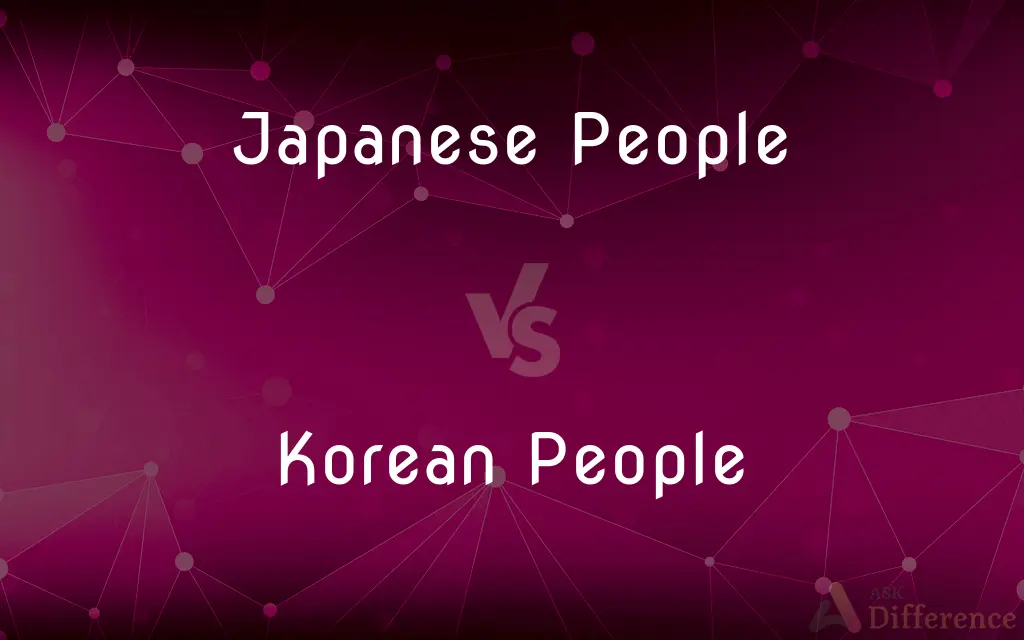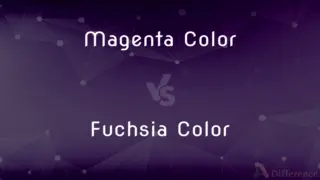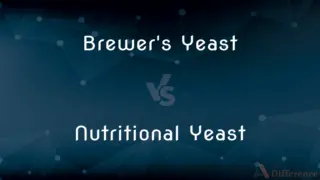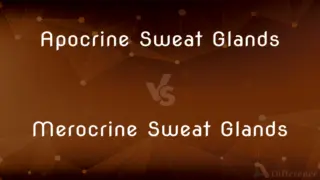Japanese People vs. Korean People — What's the Difference?
Edited by Tayyaba Rehman — By Fiza Rafique — Published on December 2, 2023
Japanese People originate from Japan, an archipelago in East Asia, with unique customs, language, and history. Korean People hail from the Korean Peninsula, possessing distinct traditions, language, and history of their own.

Difference Between Japanese People and Korean People
Table of Contents
ADVERTISEMENT
Key Differences
Japanese People and Korean People, while both residing in East Asia, have distinct histories that span thousands of years. The Japanese People, predominantly from the Japanese archipelago, have developed a unique culture influenced by, but different from, the surrounding regions. On the other hand, Korean People, from the Korean Peninsula, have their own rich history and culture, having had interactions with neighboring China and Mongolia.
When considering languages, Japanese People predominantly speak Japanese, which has its own script, consisting of Kanji, Hiragana, and Katakana. In contrast, Korean People primarily speak Korean, which uses the Hangul script. While both languages might sound similar to an untrained ear, they have different grammar, vocabulary, and phonetics.
In terms of traditions and festivals, Japanese People celebrate events like Tanabata, Golden Week, and Hanami, which involves viewing cherry blossoms. Korean People, conversely, have unique celebrations such as Chuseok, a harvest festival, and Seollal, the Korean New Year. Each festivity reflects the respective histories, mythologies, and values of the two cultures.
Differences in cuisine are also prominent. Japanese People often enjoy sushi, sashimi, tempura, and ramen, with a variety of regional dishes spread across the islands. Korean People savor dishes like kimchi, bulgogi, bibimbap, and Korean BBQ, which offer a distinctive flavor palette, often centered around spiciness and fermentation.
In the realm of art and entertainment, both cultures have made global impacts. Japanese People have popularized manga, anime, and J-pop. Korean People, meanwhile, have gained international acclaim for K-pop, K-dramas, and Korean cinema, contributing significantly to the global cultural landscape.
ADVERTISEMENT
Comparison Chart
Origin
From the Japanese archipelago in East Asia.
From the Korean Peninsula in East Asia.
Language
Speak Japanese; use Kanji, Hiragana, Katakana.
Speak Korean; use Hangul script.
Major Festivals
Tanabata, Golden Week, Hanami.
Chuseok, Seollal.
Cuisine
Sushi, sashimi, tempura, ramen.
Kimchi, bulgogi, bibimbap, Korean BBQ.
Popular Global Export
Manga, anime, J-pop.
K-pop, K-dramas, Korean cinema.
Compare with Definitions
Japanese People
People from a nation characterized by its mix of old-world charm and futuristic cities.
Japanese People often visit temples, even in bustling cities like Tokyo.
Korean People
Individuals with a deep connection to Korean history, culture, and traditions.
Korean People have a history spanning dynasties like Goryeo and Joseon.
Japanese People
Natives or citizens of Japan, an island nation in East Asia.
The Japanese People are renowned for their cultural festivals and traditions.
Korean People
Inhabitants of a country known for its mountainous terrain and distinct cuisine.
Korean People often enjoy meals accompanied by kimchi.
Japanese People
Individuals deeply rooted in Japanese history, arts, and traditions.
The Japanese People take pride in their samurai and geisha heritage.
Korean People
Speakers of the Korean language, which employs the Hangul script.
Korean People have a unique alphabet system created in the 15th century.
Japanese People
Speakers of the Japanese language, which uses three scripts.
Japanese People communicate using Kanji, Hiragana, and Katakana scripts.
Korean People
People from a nation globally recognized for its cultural exports in music and drama.
Korean People have popularized K-pop, reaching audiences worldwide.
Japanese People
Inhabitants of a country known for its technological advancements and ancient shrines.
Many Japanese People balance modern life with traditional practices.
Korean People
Natives or citizens of Korea, situated on the Korean Peninsula in East Asia.
Korean People celebrate the harvest festival known as Chuseok.
Common Curiosities
What language do Japanese People speak?
Japanese People predominantly speak Japanese.
Where do Japanese People originate from?
Japanese People are from Japan, located on an archipelago in East Asia.
And the Korean People?
Korean People hail from the Korean Peninsula in East Asia.
And for Korean People?
Chuseok, the harvest festival, is a major celebration for Korean People.
What about Korean People?
Korean People mainly speak Korean.
What's a traditional dish for Korean People?
Kimchi, a fermented vegetable dish, is a staple for Korean People.
Is sushi a staple for Japanese People?
Yes, sushi is a traditional dish enjoyed by many Japanese People.
Are there similarities between the two languages?
While there might be loanwords, Japanese and Korean are fundamentally distinct languages.
What's a famous festival for Japanese People?
Hanami, the cherry blossom viewing, is a popular festival among Japanese People.
Which countries have had historical interactions with Korean People?
Korean People have had historical interactions mainly with China, Mongolia, and Japan.
Have Japanese People influenced global entertainment?
Absolutely, Japanese People have popularized genres like anime and J-pop.
And the Korean People's script?
Korean People primarily use the Hangul script for writing.
What about Korean People's influence?
Korean People have significantly influenced global culture with K-pop and K-dramas.
How do Japanese People write?
They use a combination of scripts: Kanji, Hiragana, and Katakana.
Are the cultures of Japanese People and Korean People similar?
While there are some similarities due to proximity, each has distinct traditions, histories, and practices.
Share Your Discovery

Previous Comparison
Magenta Color vs. Fuchsia Color
Next Comparison
Brewer’s Yeast vs. Nutritional YeastAuthor Spotlight
Written by
Fiza RafiqueFiza Rafique is a skilled content writer at AskDifference.com, where she meticulously refines and enhances written pieces. Drawing from her vast editorial expertise, Fiza ensures clarity, accuracy, and precision in every article. Passionate about language, she continually seeks to elevate the quality of content for readers worldwide.
Edited by
Tayyaba RehmanTayyaba Rehman is a distinguished writer, currently serving as a primary contributor to askdifference.com. As a researcher in semantics and etymology, Tayyaba's passion for the complexity of languages and their distinctions has found a perfect home on the platform. Tayyaba delves into the intricacies of language, distinguishing between commonly confused words and phrases, thereby providing clarity for readers worldwide.














































